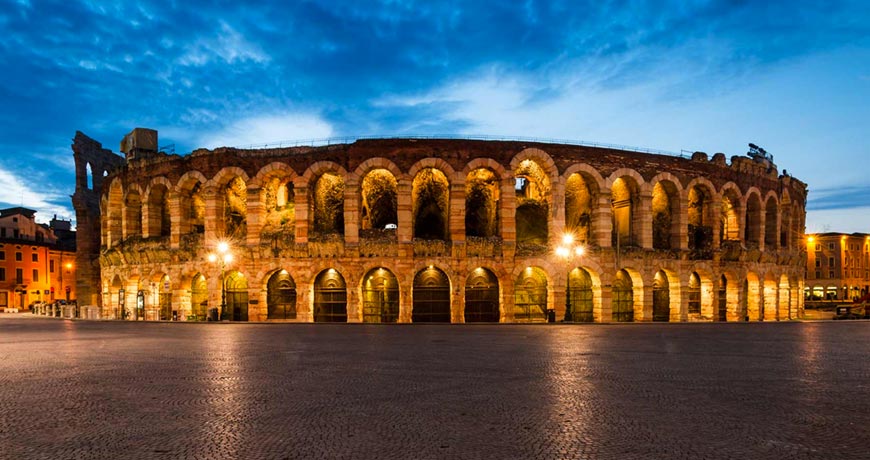Touristic information: Verona

Verona's history started as a settling of ancient Indo-European populations. The first contacts with the Roman world date back to 216 BC, the year when the city allied with Rome in the battle of Canne, and in the 1st century BC Verona became a Roman municipality. Later the Ostrogoth king Theodorick chose its as the residence for his court and, with king Alboino, Verona became the first capital of the Longobards in Italy. In the Middle Ages Verona was a free municipality, but its moment of maximum splendour was during the power of the Della Scala family. This is the period, according to tradition, when the story of Juliet and Romeo took place.
During the Renaissance the city became part of the Republic of Venice, with which it shared political, artistic and cultural events. With the arrival of Napoleon, Verona was the setting for many battles and in the first half of the 19th century became a military stronghold for the Austrian Empire until, in 1866, it became part of Italy.
Verona deserves to be seen for various reasons; first of all its magnificent monuments, but also theextraordinary charm it has for visitors from all over the world, who are enchanted by the heartbreaking tale of Romeo and Juliet. During the period of the Republic of Venice, Verona transformed and some important buildings were added, the Della Scala court became an active artistic and cultural production centre, attracting artists and poets such as Giotto, Altichiero, Dante and Petrarca. The city has a very ancient and well preserved historical centre, with buildings, churches and palaces of different ages and styles, and famous squares such as the immense Piazza Bra, where you can see the Arena, the famous Roman amphitheatre, and Piazza Mercato Vecchiowith the Scala della Ragione and the panoramic Torre dei Lamberti. Its museums are also extraordinary, preserving the treasures of Veronese art, particularly the Museo di Castelvecchiowhere you can admire paintings by Pisanello, Mantegna, Bellini and other masterpieces of Italian renaissance art, the Museo di Palazzo Forti and the Museo Lapidario Maffeiano. Also don't miss the churches of S.Anastasia and S. Zeno Maggiore.
For over 80 years the Arena di Verona has been hosting an opera season that is unique in the world for the quality of the artistic events and for the magnificent scenery it offers the audience. In the programme, as well as opera, you can find recitals and ballets. However, Verona's artistic events do not end with the Arena season; the Teatro Nuovo and the Teatro Camploy offer very interesting programmes every year. Also interesting is the yearly sentimental and melodramatic cinema festival called Schermi d'amore, born of the ashes of the Verona Film Festival.
